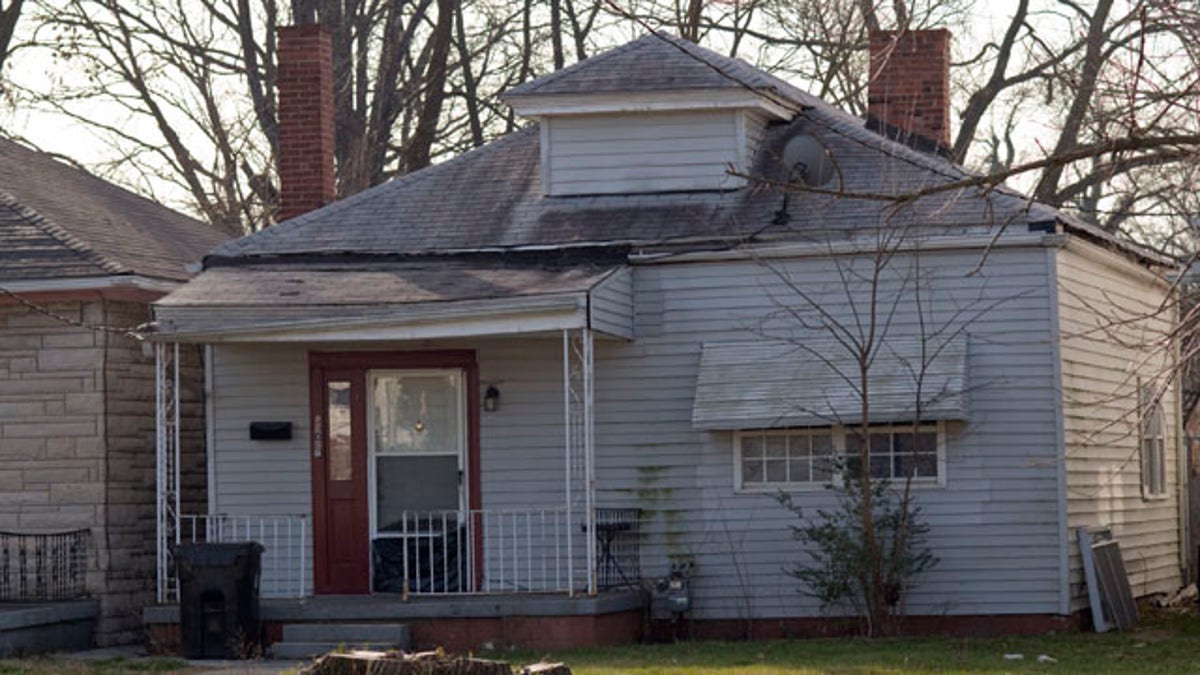
Jan. 10: This is the house where the young Cassius Clay, later to be known as Muhammad Ali, grew up in Louisville, Ky. (AP)
LOUISVILLE, Kentucky – Muhammad Ali's fists made him famous, but his plight as a social activist was perhaps his biggest fight.
At the Muhammad Ali Center, visitors see the three-time world heavyweight champion railing against war, segregation and poverty. They also see the softer side of a man embracing spiritual growth.
On Saturday, the center will be in the limelight when Ali is surrounded by friends for a private party celebrating his 70th birthday. Having spent more than a decade raising money to create and operate the six-story center in downtown Louisville, the Alis are using the champ's latest personal milestone to benefit the 6-year-old complex.
The party, in a banquet room offering a sweeping view of the Ohio River, will double as a $1,000-per-person fundraiser for Ali's beloved center, where the boxer's words are inscribed throughout the exhibits.
Australian Ben Physick, who toured the center with his wife recently, said he was especially moved by Ali's pronouncement that he was put on the planet not to be a great boxer but to fight injustice and racism.
"It isn't just about boxing, it's about being a better person," Physick said.
The center traces Ali's remarkable life and the turbulent times that helped shape one of the world's most recognizable figures. Ali, who is battling Parkinson's disease, turns 70 on Tuesday.
Born as Cassius Marcellus Clay Jr. on Jan. 17, 1942, he grew up in a predominantly black West End neighborhood of Louisville.
He took up boxing at age 12, later becoming a top amateur boxer and Olympic gold medalist.
Ali, raised in a Baptist family, announced his conversion to the Muslim faith soon after defeating Sonny Liston in 1964 to win the heavyweight crown for the first time. He moved to Miami in the early 1960s but kept his close ties to Louisville, where he has a home today. The Alis also have homes in Michigan and Arizona.
The center showcases Ali's grace and power as a boxer with video replays of his most famous bouts and plenty of memorabilia, including a rhinestone-studded boxing robe, a gift from Elvis Presley.
Visitors can also shadowbox, punch a speed bag and lean into a heavy bag that lets them feel the power of an Ali punch.
The center focuses on Ali's causes outside boxing with a series of video, photograph and text displays. Ali envisions the center as a place to promote world understanding and peace.
"His legacy reaches so far beyond the ring," said Jeanie Kahnke, a center spokeswoman.
Though largely absent from the public eye now, Ali remains a powerful symbolic figure. Last year, Ali, along with other high-profile political dignitaries, backed efforts to free two American hikers held captive for more than two years in an Iranian prison. The hikers were eventually released.
The center, built around the accomplishments of someone who called himself "The Greatest," encourages visitors to reach their own potential by promoting six core values: respect, confidence, conviction, dedication, giving and spirituality.
Ali's social commentary is woven into the displays.
"There are lots of moments when you sort of get chills," said Physick, the Australian.
One display revives painful memories of segregation. It features a lunch counter and a gruff voice to mimic the experience of blacks who were denied seats. Ali was refused service at a Louisville restaurant after he returned home as a gold medal winner in the 1960 Olympics.
Other exhibits replay the turbulent 1960s and Ali's role as a civil rights supporter and opponent of the Vietnam War.
Ali was stripped of his boxing title in 1967 for refusing to go into the Army during the war, citing his religious beliefs.
His decision turned him into a polarizing figure, reviled by many in the U.S.
The center doesn't shy away from those days. One exhibit features a congressman's comments that Ali's decision was "an insult to every mother's son serving in the armed forces."
Ali, who was convicted of draft evasion, took his legal battle all the way to the U.S. Supreme Court, which in 1971 ruled in his favor.
The center has drawn visitors from more than 100 countries. Cases display the Presidential Medal of Freedom he received from President George W. Bush. There's also the torch that Ali carried at the opening of the 1996 Olympics in Atlanta.
"Some people have come to Louisville just to experience this," Kahnke said. "They've never been to the United States before. I think they feel like it's the closest thing to the champ that they'll ever get."
Physick, who lives in Sydney, was born two years before Ali's boxing career ended in 1981. He toured the center as part of a trip across the U.S.
In a way, Ali was a fixture in his boyhood home -- his brother had a life-size photo of Ali standing over a defeated opponent.
"The only reason we came to Louisville was to see the Ali Center," he said. "I think I could spend a whole day here."








































